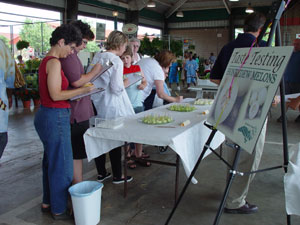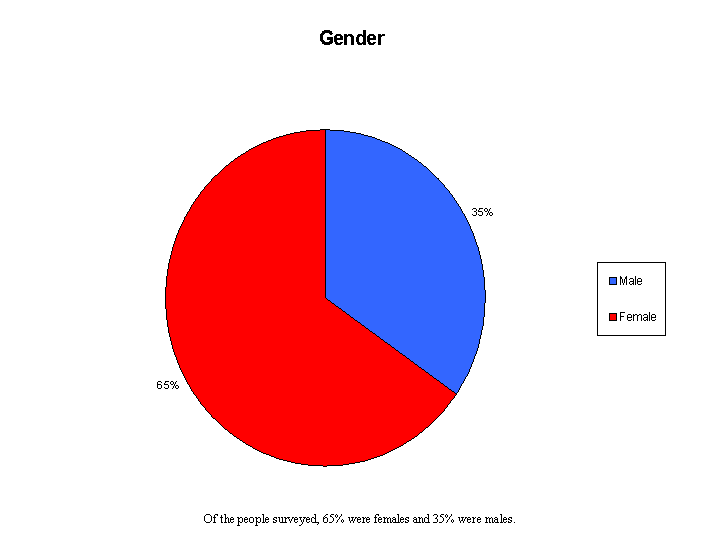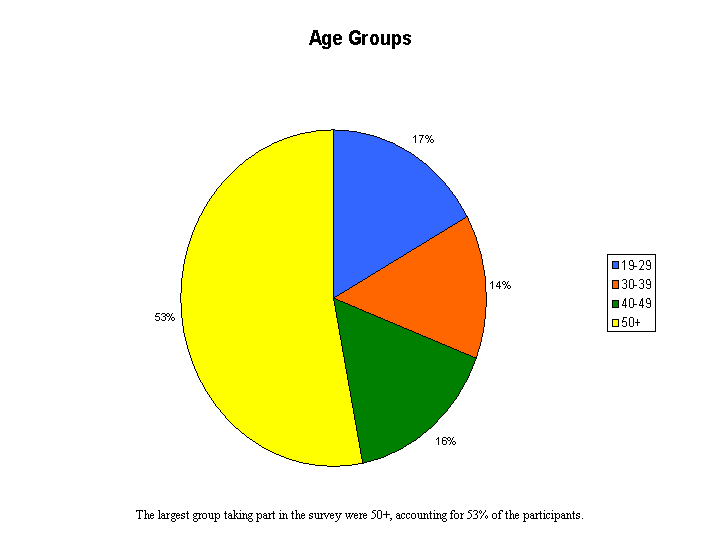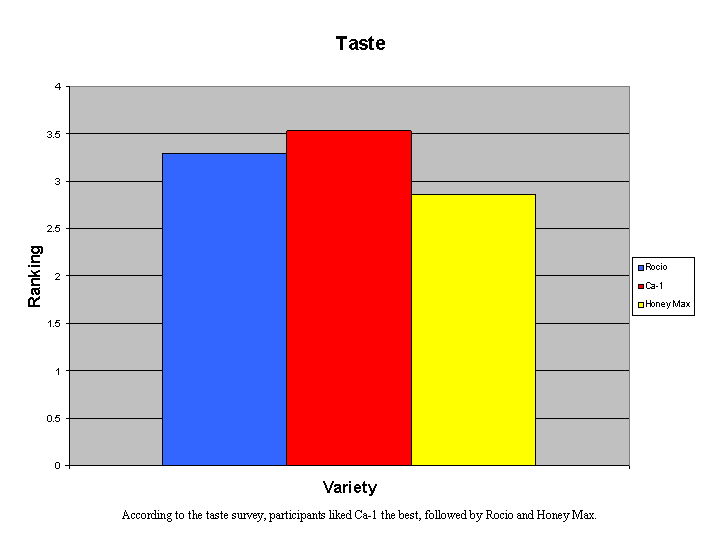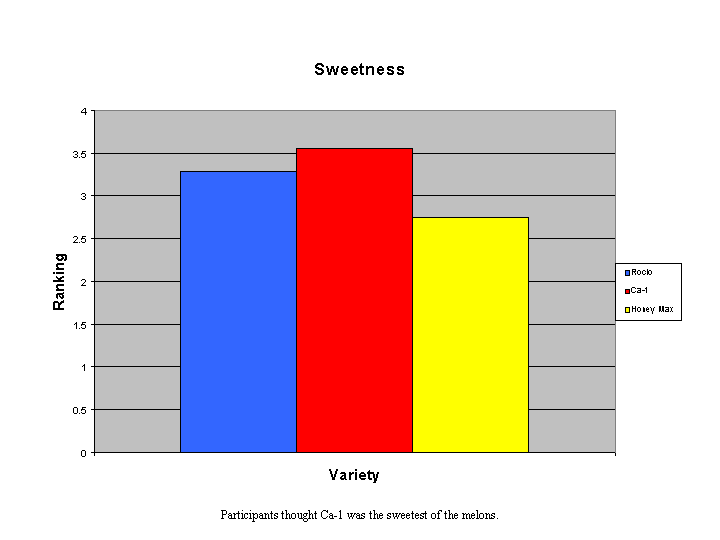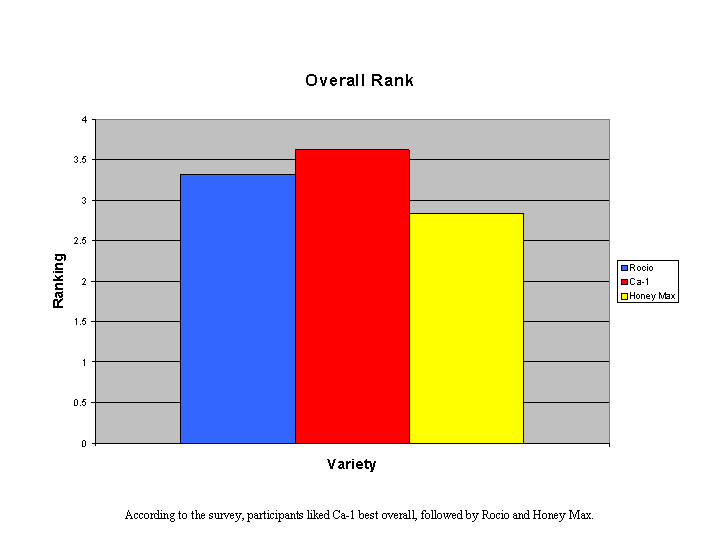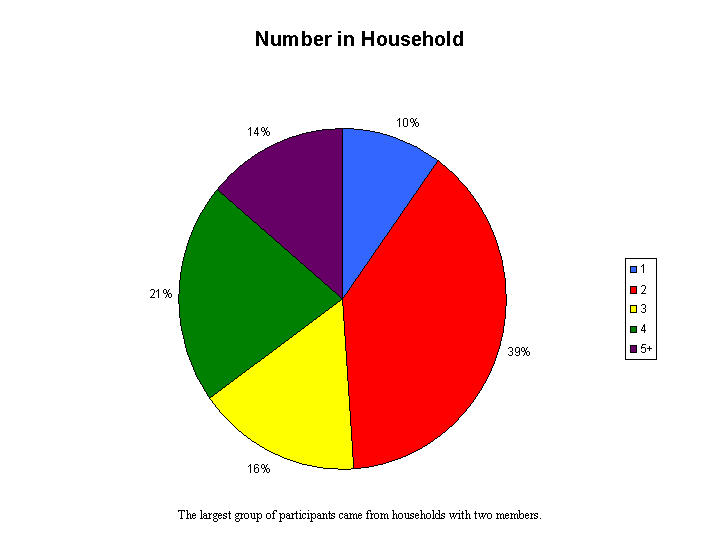Honeydew Survey-2004 Report
go.ncsu.edu/readext?438931
en Español / em Português
El inglés es el idioma de control de esta página. En la medida en que haya algún conflicto entre la traducción al inglés y la traducción, el inglés prevalece.
Al hacer clic en el enlace de traducción se activa un servicio de traducción gratuito para convertir la página al español. Al igual que con cualquier traducción por Internet, la conversión no es sensible al contexto y puede que no traduzca el texto en su significado original. NC State Extension no garantiza la exactitud del texto traducido. Por favor, tenga en cuenta que algunas aplicaciones y/o servicios pueden no funcionar como se espera cuando se traducen.
Português
Inglês é o idioma de controle desta página. Na medida que haja algum conflito entre o texto original em Inglês e a tradução, o Inglês prevalece.
Ao clicar no link de tradução, um serviço gratuito de tradução será ativado para converter a página para o Português. Como em qualquer tradução pela internet, a conversão não é sensivel ao contexto e pode não ocorrer a tradução para o significado orginal. O serviço de Extensão da Carolina do Norte (NC State Extension) não garante a exatidão do texto traduzido. Por favor, observe que algumas funções ou serviços podem não funcionar como esperado após a tradução.
English
English is the controlling language of this page. To the extent there is any conflict between the English text and the translation, English controls.
Clicking on the translation link activates a free translation service to convert the page to Spanish. As with any Internet translation, the conversion is not context-sensitive and may not translate the text to its original meaning. NC State Extension does not guarantee the accuracy of the translated text. Please note that some applications and/or services may not function as expected when translated.
Collapse ▲This is a 2004 report from a NC Specialty Crops Program Project. It is posted for historical reference purposes.
On July 16, 2004 personnel from the marketing division of the NCDA & CS held a Honey Dew Melon taste testing in Raleigh at the State Farmer’s Market.
The survey consisted of three varieties of honeydew melons, two grown in North Carolina and one from California. People participating in the survey were asked gender, age, and number in household. They were then asked to rate the three varieties as to taste, sweetness and overall ranking. Finally, they were asked if they had purchased Honey Dew melons in the past and which, if any, of these melons from the test they would purchase.
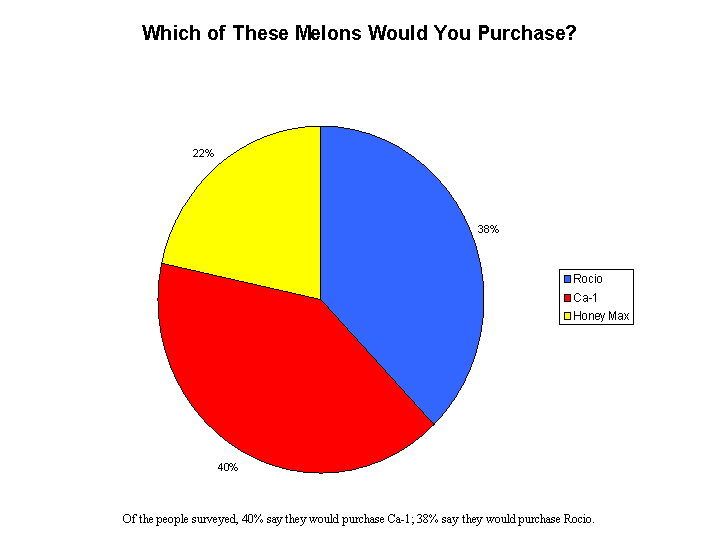 Reviewed 7/3/2022. Jeanine Davis, NC Alternative Crops & Organics Program, Department of Horticultural Science, NC State University.
Reviewed 7/3/2022. Jeanine Davis, NC Alternative Crops & Organics Program, Department of Horticultural Science, NC State University.



